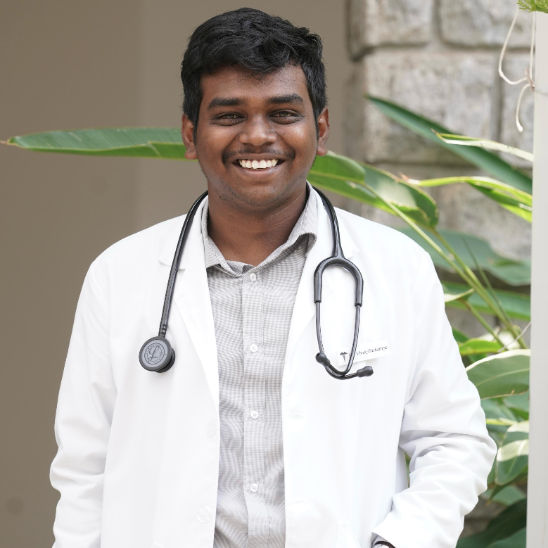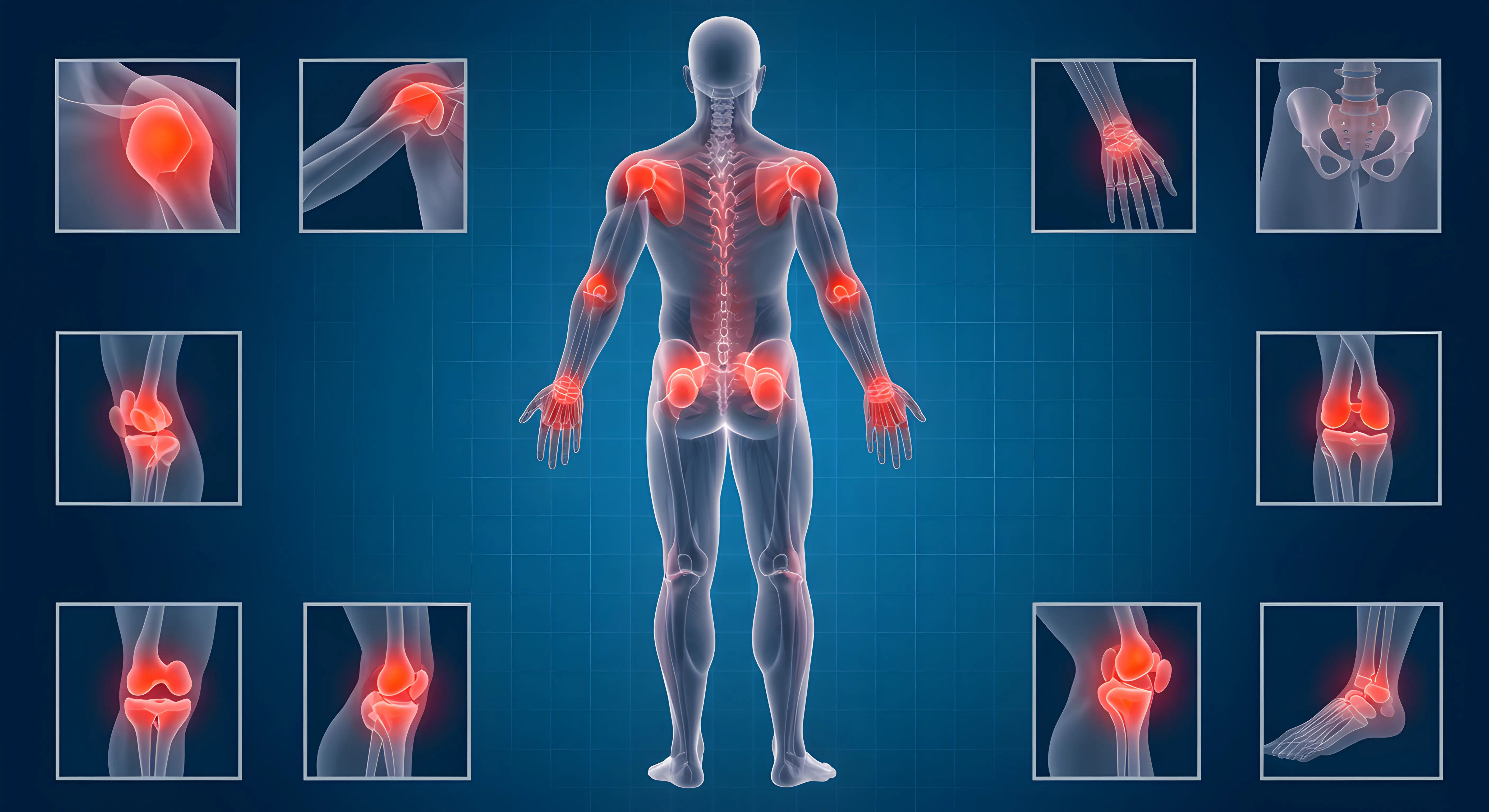Guide to What Do You Need Know About Shoulder Arthroscopy
Considering shoulder arthroscopy? Our comprehensive guide covers everything you need to know, from the procedure and recovery timeline to potential risks and what to expect. Get informed and prepare for your surgery with confidence.

Written by Dr. Dhankecha Mayank Dineshbhai
Reviewed by Dr. M L Ezhilarasan MBBS
Last updated on 13th Jan, 2026

Introduction
Shoulder pain can be debilitating, affecting everything from your sleep to your ability to work and enjoy hobbies. When conservative treatments like rest, physical therapy, or medication don't provide relief, your doctor might suggest shoulder arthroscopy. This minimally invasive surgical procedure has revolutionized the treatment of shoulder problems, offering smaller incisions, less pain, and faster recovery times compared to traditional open surgery. But what exactly does it entail? This guide will walk you through everything you need to know—from the common conditions it treats to the detailed recovery process—empowering you to have an informed discussion with your orthopedic specialist. Whether you're facing a rotator cuff tear or chronic shoulder instability, understanding the ins and outs of this procedure is the first step toward getting back to a pain-free life.
What is Shoulder Arthroscopy? The Basics Explained
Shoulder arthroscopy is a surgical technique used to diagnose and treat problems inside the shoulder joint. The term itself comes from the Greek words "arthro" (joint) and "skopein" (to look). Essentially, it allows a surgeon to see inside your shoulder without making a large incision.
The procedure involves a small, pencil-sized instrument called an arthroscope. This device contains a tiny camera and a light source. The surgeon inserts the arthroscope into the shoulder joint through a small incision, about the size of a buttonhole. The camera projects high-definition images of the inside of your shoulder onto a video monitor, giving the surgeon a clear, magnified view of the bones, cartilage, tendons, and ligaments. If a problem is identified, the surgeon can then insert specialized surgical instruments through other small incisions to repair the damage.
Arthroscopy vs. Open Surgery: Key Differences
The primary advantage of arthroscopic shoulder surgery over traditional open surgery is its minimally invasive nature.
- Smaller Incisions: Open surgery requires a large incision to expose the entire joint, while arthroscopy uses several small portals.
- Less Tissue Damage: Because the incisions are smaller, there is significantly less damage to the surrounding muscles and soft tissues.
- Reduced Pain and Scarring: Less tissue trauma translates to less post-operative pain and minimal scarring.
- Faster Recovery Time: Patients often experience a quicker recovery and can return to their normal activities sooner than with open surgery.
- Outpatient Procedure: Most shoulder arthroscopies are performed on an outpatient basis, meaning you can go home the same day.
Consult Top Specialists
Common Reasons You Might Need a Shoulder Arthroscopy
Your doctor may recommend this procedure for a variety of persistent shoulder issues that haven't responded to non-surgical treatments. It's particularly effective for treating specific soft tissue injuries.
Rotator Cuff Tears: A Primary Cause
The rotator cuff is a group of muscles and tendons that surround the shoulder joint, keeping the head of the upper arm bone firmly within the shallow socket of the shoulder. A tear in these tendons is a very common reason for shoulder arthroscopy. The surgeon can reattach the torn tendon to the bone using miniature anchors and sutures, providing significant pain relief and restored function.
Labral Tears (SLAP Tears)
The labrum is a ring of cartilage that lines the rim of the shoulder socket, providing stability. Tears in the labrum, often called SLAP (Superior Labrum from Anterior to Posterior) tears, can occur from acute injury or overuse. Arthroscopic surgery is highly effective at repairing or debriding (smoothing out) these tears, especially for athletes involved in throwing sports.
Shoulder Impingement Syndrome
This occurs when the rotator cuff tendons are irritated and inflamed as they pass through the subacromial space—the narrow passage beneath the acromion (a bony prominence on your shoulder blade). During arthroscopy, the surgeon can perform a subacromial decompression, shaving away a small amount of bone and inflamed tissue to create more space for the tendons to move freely.
Other Conditions Treated Arthroscopically
Other issues include recurrent shoulder dislocations (often repaired with a procedure called arthroscopic Bankart repair), inflammation within the joint (synovitis), bone spurs, and even certain types of fractures. The versatility of the arthroscopic procedure makes it a valuable tool for orthopedic surgeons.
Preparing for Your Shoulder Surgery: A Step-by-Step Checklist
Proper preparation is key to a successful outcome. Your surgical team will provide specific instructions, but general steps include:
- Medical Evaluation: You will likely undergo a physical exam and tests like blood work or an ECG to ensure you are fit for surgery.
- Medication Review: Inform your doctor about all medications, supplements, and vitamins you take. You may need to stop taking certain ones, like blood thinners, a week or so before surgery.
- Fasting: You will be instructed not to eat or drink anything for a specific period (usually after midnight) before your procedure.
- Arrange for Help: Since you will not be able to drive after the surgery, arrange for someone to take you home and stay with you for at least the first 24 hours.
- Prepare Your Home: Place everyday items (remote, phone, medications) on a table or shelf where you can reach them with one hand. Consider preparing meals in advance.
The Road to Recovery: What to Expect After Surgery
Understanding the recovery time for shoulder arthroscopy is crucial for setting realistic expectations. Recovery is a process that requires patience and dedication to physical therapy.
The First 24-48 Hours: Pain Management and Immobilization
After surgery, your shoulder will be bandaged and placed in a sling to protect the repair. You will be given instructions on how to manage swelling and pain with ice packs and prescribed medication. It's normal to feel some discomfort during this initial phase.
The Role of Physical Therapy in Regaining Mobility
Physical therapy is the cornerstone of a successful recovery. Your surgeon will prescribe a specific rehabilitation protocol. Initially, therapy will focus on gentle passive motions to prevent stiffness. As you heal, you will progress to active exercises to strengthen the muscles around your shoulder and restore range of motion. Adhering strictly to your PT program is the single most important factor in determining your long-term outcome.
Long-Term Recovery Timeline and Milestones
- First 6 Weeks: Focus is on protecting the repair and regaining passive motion. You will likely need to wear a sling.
- 6 Weeks to 3 Months: You will gradually wean off the sling and begin active strengthening exercises.
- 4 to 6 Months: Most patients regain full functional use of their shoulder for daily activities.
- 6+ Months: Return to high-demand sports or heavy labor may take 6 months to a year, depending on the procedure performed.
Potential Risks and Complications of Shoulder Arthroscopy
While generally very safe, like any surgery, shoulder arthroscopy carries potential risks. These are uncommon but can include infection, blood clots, nerve or blood vessel damage, excessive bleeding, and stiffness. There is also a small risk that the procedure may not fully relieve your symptoms or that the problem could recur. It's essential to discuss these risks thoroughly with your surgeon beforehand.
Key Takeaways for Patients
- Shoulder arthroscopy is a minimally invasive procedure used to diagnose and treat a wide range of shoulder problems.
- It offers significant benefits over open surgery, including smaller incisions, less pain, and a faster recovery.
- Success heavily depends on the specific condition being treated and the patient's commitment to post-operative physical therapy.
- Recovery is a gradual process that can take several months; patience is key.
If your shoulder pain is not improving with conservative care, consult an orthopedic specialist to see if you are a candidate. You can book a specialist consultation online with Apollo24|7 to discuss your symptoms and explore treatment options.
Conclusion
Shoulder arthroscopy is a remarkable medical advancement that has helped millions of people find relief from chronic shoulder pain and regain function. By understanding what the procedure involves, from the initial diagnosis to the meticulous repair and the essential rehabilitation phase, you can approach the process with confidence. Remember, the goal is not just to fix a structural problem but to restore your quality of life. If you are struggling with persistent shoulder issues, take the next step. Speak with a qualified orthopedic surgeon who can evaluate your specific situation and determine if this minimally invasive approach is the right path for you. Taking action today can set you on the course to a more active and pain-free tomorrow.
Consult Top Specialists
Consult Top Specialists

Dr. Ajay K Sinha
General Physician/ Internal Medicine Specialist
30 Years • MD, Internal Medicine
Delhi
Apollo Hospitals Indraprastha, Delhi
(200+ Patients)

Dr. Anand Ravi
General Physician
2 Years • MBBS
Bengaluru
PRESTIGE SHANTHINIKETAN - SOCIETY CLINIC, Bengaluru

Dr. Dhanraj K
General Physician/ Internal Medicine Specialist
25 Years • MBBS, MD Internal Medicine - Osmania Medical College, Hyderabad
Hyderabad
Apollo Hospitals Jubilee Hills, Hyderabad
(425+ Patients)

Dr. Harshendra Jaiswal
General Physician/ Internal Medicine Specialist
12 Years • MBBS , MD (General medicine)
Kolkata
108 DHANA DHANVANTARI Clinic, Kolkata
(25+ Patients)

Dr. Vivek D
General Physician
4 Years • MBBS
Bengaluru
PRESTIGE SHANTHINIKETAN - SOCIETY CLINIC, Bengaluru
Consult Top Specialists

Dr. Ajay K Sinha
General Physician/ Internal Medicine Specialist
30 Years • MD, Internal Medicine
Delhi
Apollo Hospitals Indraprastha, Delhi
(200+ Patients)

Dr. Anand Ravi
General Physician
2 Years • MBBS
Bengaluru
PRESTIGE SHANTHINIKETAN - SOCIETY CLINIC, Bengaluru

Dr. Dhanraj K
General Physician/ Internal Medicine Specialist
25 Years • MBBS, MD Internal Medicine - Osmania Medical College, Hyderabad
Hyderabad
Apollo Hospitals Jubilee Hills, Hyderabad
(425+ Patients)

Dr. Harshendra Jaiswal
General Physician/ Internal Medicine Specialist
12 Years • MBBS , MD (General medicine)
Kolkata
108 DHANA DHANVANTARI Clinic, Kolkata
(25+ Patients)

Dr. Vivek D
General Physician
4 Years • MBBS
Bengaluru
PRESTIGE SHANTHINIKETAN - SOCIETY CLINIC, Bengaluru
More articles from Frozen Shoulder
Frequently Asked Questions
How long does a shoulder arthroscopy surgery take?
The duration varies depending on the procedure being performed. A simple diagnostic scope may take 30-45 minutes, while a complex rotator cuff repair can take 1.5 to 2 hours.
When can I drive after shoulder arthroscopy?
You cannot drive while wearing a sling or taking narcotic pain medication. Most patients are able to resume driving after 2-6 weeks, once they have adequate control and reaction time in their arm. Always get clearance from your surgeon first.
What is the typical success rate for arthroscopic rotator cuff repair?
Success rates are generally high, often cited between 85% to 95% for pain relief and improved function. Success depends on the size of the tear, the patient's age, and their adherence to rehabilitation.
Will I need physical therapy after surgery?
Yes, absolutely. Physical therapy is a critical component of recovery after shoulder surgery. It is essential for restoring range of motion, strength, and function.
Is shoulder arthroscopy very painful?
You will be under anesthesia during the procedure and will not feel any pain. Post-operatively, there will be some pain and discomfort, but this is managed effectively with medication. The pain is typically much less than with open surgery.




